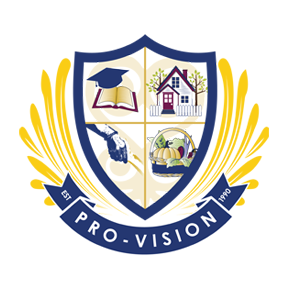Recognizing the Characteristics of Collaborative Learning
In today’s significantly interconnected world, the ability to work collaboratively is a critical ability. As traditional academic standards progress to fulfill the needs of the 21st century, collective discovering becomes a critical principle. This write-up looks into the details of homework solver collective discovering, discovering its advantages, approaches, and obstacles, while providing understandings into just how it forms modern education and learning.
Collective learning goes beyond merely interacting.

It embodies an academic method where people engage in a cumulative effort to gain knowledge, fix issues, and achieve a typical goal. This approach highlights the value of variety in thought and promotes deeper understanding with interaction and shared experience.
The Benefits of Collaborative Understanding
Joint understanding offers a myriad of benefits, making it a preferred technique in instructional setups around the world. One of the main advantages is the enhancement of essential assuming abilities. As students involve with peers, they are revealed to different perspectives, urging them to review and assess details more critically.
Another substantial benefit is the renovation in communication skills. Collaborative understanding environments require energetic listening, articulate expression of ideas, and respectful discussion. These skills are indispensable, not just academically, however in expert and social contexts also.
Cognitive growth is likewise especially reinforced through joint initiatives. Interacting requires learners to express their reasoning, challenge presumptions, and integrate different perspectives, leading to much deeper cognitive processing and retention.
- Enhanced crucial assuming
- Improved interaction abilities
- Increased cognitive advancement
- Higher retention rates
- Cultivating of social and leadership abilities
The collective impact of these benefits is a much more alternative instructional experience. Learners not just obtain expertise but additionally create necessary life abilities that prepare them for future joint ventures in any field.
Strategies for Reliable Collaborative Learning
Executing collective understanding successfully needs thoughtful technique and preparation.
Educators should develop an atmosphere for partnership, where learners feel secure and inspired to get involved openly. Below are some approaches that can facilitate successful joint knowing experiences.
Firstly, developing clear objectives and expectations is paramount. When learners recognize the goals and their duties within the team, they are more probable to involve meaningfully. Educators should connect these goals clearly and ensure they are lined up with the educational program.
Secondly, the use of diverse team frameworks can improve the discovering experience. By varying team make-up, whether by skill level, rate of interest, or history, educators can stimulate vibrant communications and a more comprehensive understanding of the material.
Obstacles in Collaborative Learning
While joint discovering offers numerous advantages, it is not without its challenges. One usual issue is the variation in team participant engagement. Some individuals may dominate discussions, while others may be much less inclined to add, causing a discrepancy in the knowing experience.
- Diverse degrees of engagement
- Prospective for problem
- Time management troubles
- Diverse levels of commitment
Moreover, conflicts can emerge because of varying opinions, working styles, or misconceptions. Educators needs to be furnished to take care of these problems properly, fostering an environment where respectful discussion dominates.
The Role of Modern Technology in Collaborative Discovering
In the digital age, innovation plays a critical function in assisting in collective discovering. On-line systems break geographical barriers, enabling individuals from varied places to team up in actual time. These devices offer a plethora of functions that boost collective initiatives, from shared records and conversation online forums to online meeting spaces.

Modern technology not only expands the extent of who can participate in collaborative knowing yet likewise enriches the top quality of communication. Learners can access a broader range of sources, engage with interactive web content, and apply their knowledge in innovative ways.
Future of Collaborative Learning
Looking in advance, the future of joint understanding shows up appealing. As schools remain to embrace modern technology and introduce pedagogical methods, collaboration will likely come to be a cornerstone of finding out experiences in any way levels of education.
Ultimately, the essence of collective understanding lies in its ability to equip individuals with shared initiative and good understanding. As we move on, growing these experiences will certainly be vital in preparing learners not just to prosper academically, but to grow in a facility, interconnected globe.
